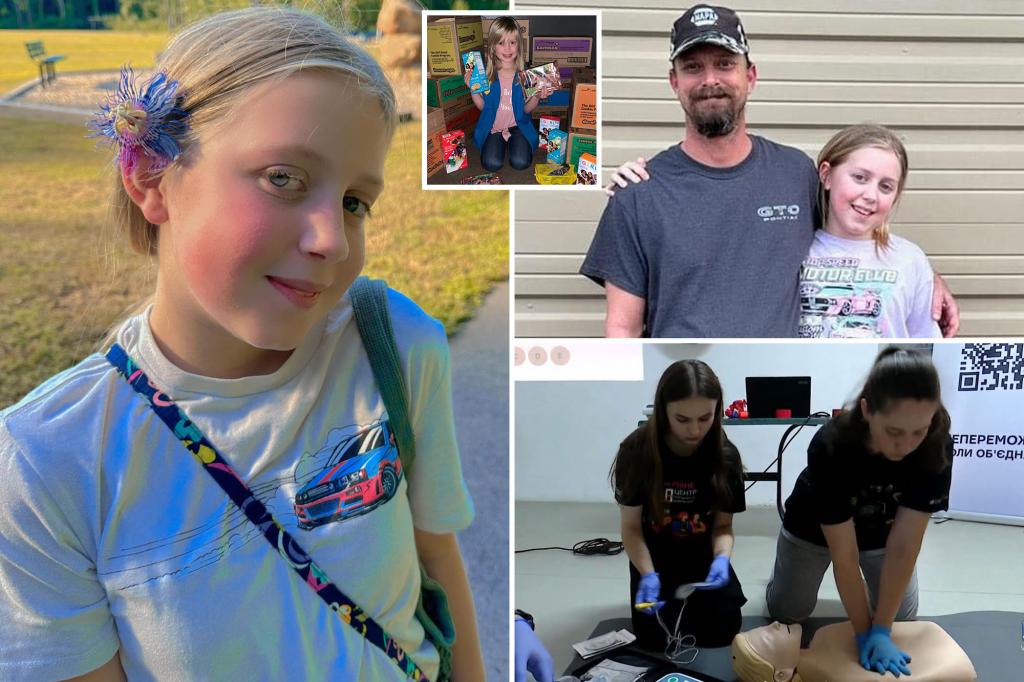In a remarkable act of courage, 11-year-old Vada Carawan saved her father’s life using CPR, a skill she had just learned days earlier during her Girl Scout training. The incident took place at their home in Virginia when Clint Carawan suffered a heart attack. Vada’s quick thinking and recently acquired skills were pivotal in this life-threatening situation, highlighting the importance of CPR training, especially for young individuals. This inspiring story not only showcases the profound impact of youth education on emergency preparedness but also emphasizes that such critical skills can transcend age barriers.
As Vada found herself in a horrifying scenario, she initially experienced panic and shock which made her forget the life-saving techniques she had learned. “Of course, it was scary,” she said, recounting her emotional turmoil during the harrowing moments when she discovered her father on the floor. Despite her fear and tears, Vada quickly managed to think clearly enough to call for help. She dialed 911, realizing the urgency of the situation, which speaks volumes about her presence of mind in a crisis. The family dog, Maggie, also played a role during the incident, as she attempted to rouse Clint, demonstrating how pets can instinctively sense distress.
Once she regained her focus, Vada began performing chest compressions on her father while remaining on the phone with the paramedics. The situation was not just a dry run; it was her dad’s life on the line, and Vada found the emotional weight of the situation challenging as she compared it with her previous training. “I was actually the only person in my whole class to successfully save our dummy,” she said, describing her experience with the CPR dummy that had lights to indicate success. The difference in performing CPR on her father rather than a dummy was stark, and her nerves made it difficult, yet her determination shone through in a time of necessity.
Acknowledging the gravity of her actions, Vada illustrated the emotional and physical rigor of performing CPR on a real person. Her reflections on the experience underline the human element in emergency procedures; it’s one thing to practice on a lifeless dummy, and quite another to do so on a loved one. Her story illustrates how training can prepare individuals for emergencies but also reveals the psychological challenge of acting decisively when the stakes are incredibly high. Vada’s experience is a testament to her resilience when faced with a daunting task.
The efforts of young Vada did not go unnoticed. First responders and her mother, Amanda Carawan, praised her heroic actions for potentially saving Clint’s life. Amanda expressed immense pride in her daughter, relaying how Vada’s instincts and training instilled a sense of readiness that proved crucial at that moment. “She got to be his hero,” Amanda fondly stated, highlighting the bond between them and how Vada was able to step up when her family needed her most. Such recognition not only honors Vada’s actions but also serves as an acknowledgment of the significant role that young individuals can play in emergency situations.
In the aftermath of the incident, Vada has become a figure of inspiration, demonstrating that age should not deter anyone from learning life-saving skills. She encourages others, irrespective of their age, to seek out opportunities for training and to equip themselves with essential skills like CPR. “Just put your mind to anything that you would want to do,” she advised, stressing the importance of making the effort. Vada’s experience is a powerful reminder that preparedness can come from any source, and through training and education, even young children can become heroes when it matters the most. Her story has transcended beyond a personal family incident to become a broad message of empowerment and action in the face of emergencies.

